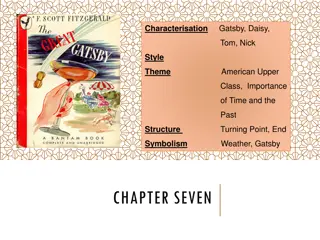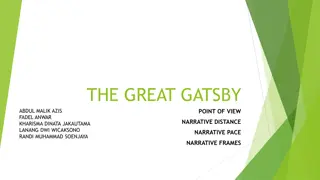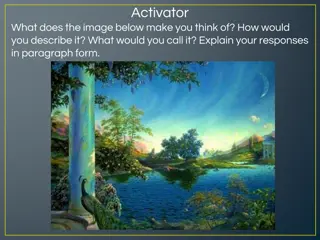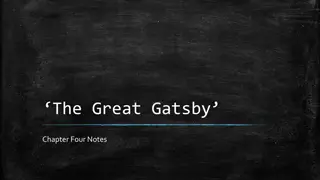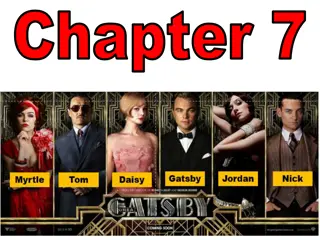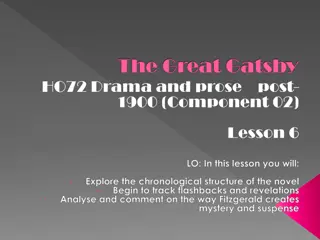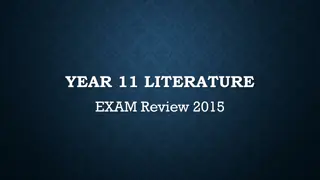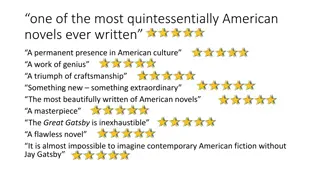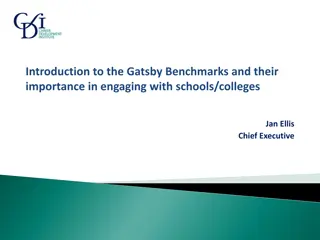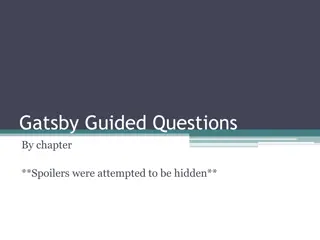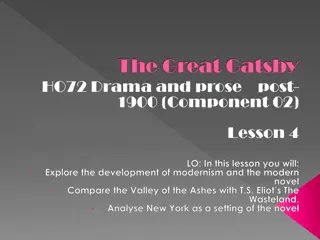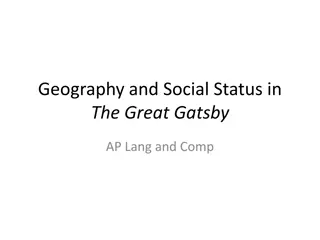Investigating Fitzgerald's Use of Song and Imagery in Chapter 5 of "The Great Gatsby
Explore the depiction of Daisy and Gatsby, analyze the use of fear-related words, light imagery, and weather in Chapter 5. Delve into Fitzgerald's purpose behind Klipspringer's songs and the reader's understanding of Gatsby's inner life. Reflect on Nick's observation of human change in the final scene.
Download Presentation

Please find below an Image/Link to download the presentation.
The content on the website is provided AS IS for your information and personal use only. It may not be sold, licensed, or shared on other websites without obtaining consent from the author.If you encounter any issues during the download, it is possible that the publisher has removed the file from their server.
You are allowed to download the files provided on this website for personal or commercial use, subject to the condition that they are used lawfully. All files are the property of their respective owners.
The content on the website is provided AS IS for your information and personal use only. It may not be sold, licensed, or shared on other websites without obtaining consent from the author.
E N D
Presentation Transcript
The Great Gatsby HO72 Drama and prose HO72 Drama and prose post post- -1900 (Component 02) 1900 (Component 02) Lesson 9 Lesson 9 LO: In this lesson you will: Investigate aspects of chapter 5 Explore and comment on Fitzgerald s use of song
Investigating Chapter 5 Compare the description of Daisy as she approaches Nick s house with the description of Gatsby. How many words from the semantic field of fear can you find in this chapter? Explore the use of light imagery in this chapter. How is the weather used to comment on the events in the chapter? Klipspringer plays two popular songs to his listeners. What associations might Fitzgerald want his readers to make? (See More on Fitzgerald s use of song in Chapter 5) How far do you feel the reader gains an understanding of Gatsby s inner life?
Check your learning Make a note of the key points of learning your have taken from the group investigations.
Final Thoughts Nick comments at the end of Chapter 5 that it was the hour of a profound human change , referring to the homecoming of commuters from New York. What else might this phrase apply to?


